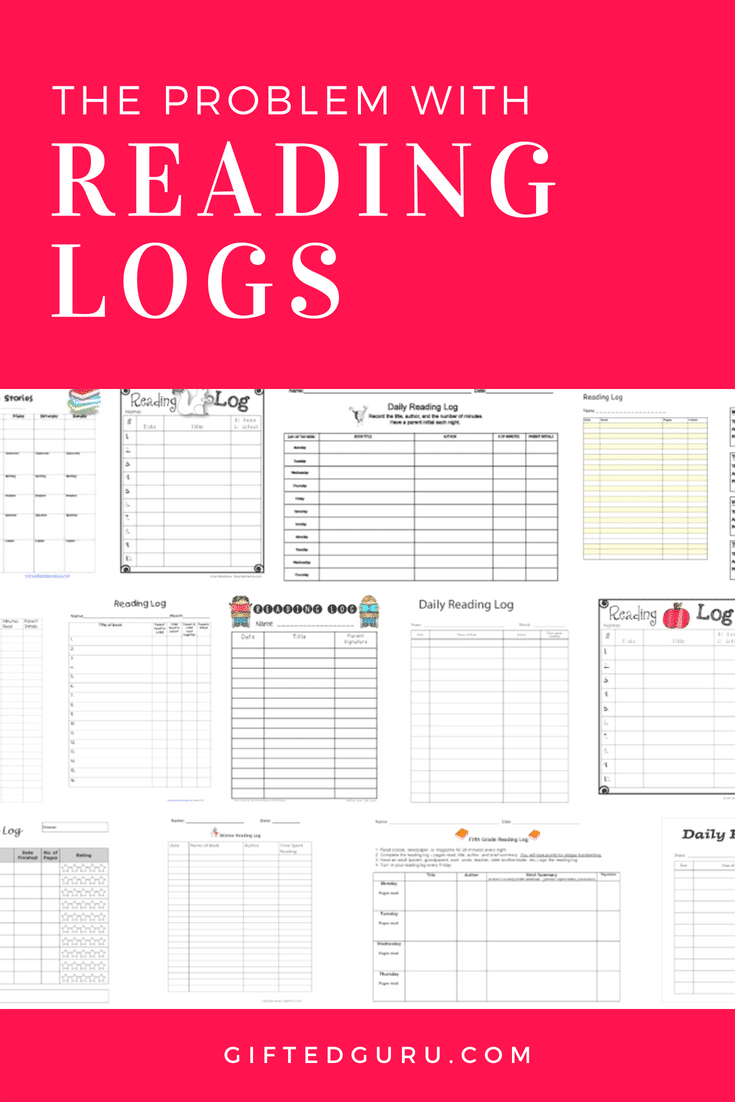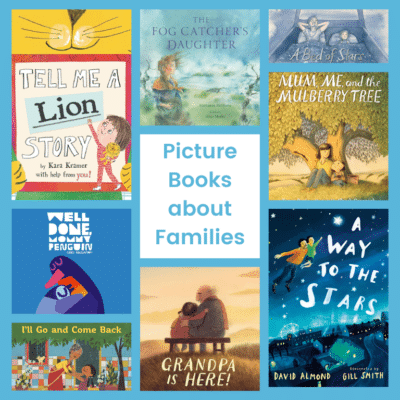There is a problem with reading logs that students are expected to keep for school. There is more than one problem, actually, but I’m focusing on one.
I’m giving solutions, too, so hold tight.
Reader Q:
This is part of my Reader Q & A series, and this question comes from a parent in Connecticut.
She recently said to me:
My son is a voracious reader. He reads all of the time. For school he has to keep this log of what he read – title, author, for how long – and he hates it. I am concerned that he might eventually lose some of his love for reading. What can I do?
My Answer: She’s right to be concerned.
I’ll cut to the chase: the problem with reading logs is that they turn something joyful into something choreful completely unnecessarily.
I just made up the word “choreful,” and I kind of like it.
There are conflicting thoughts on reading logs. There’s an article on Huffington Post in defense of them, and one in the Atlantic challenging them.
They’re an issue for many families, and like many issues, they are compounded with the gifted. The Rebellion is not just for Star Wars, trust me.
What are reading logs meant to accomplish?
If we’re going to look at the problem with reading logs, it’s important to look at why teachers want students to use them.
The answer is that reading is the key skill of education, as it is the gateway to all other skills.
If kids don’t read, they will not become better readers.
The goal is not to drive the love of reading out of students, but rather develop reading as a habit. Since teachers cannot go home and read with every student (clearly), the reading log becomes a habit developer tool.
It’s a way to show that reading isn’t just for school.
Teachers know this is an issue because:
- According to the National Center for Education Statistics, only 53 percent of children ages three to five were read to daily by a family member. That study was done in 1999. I’m guessing those numbers are actually lower now.
- Children in poverty are less likely to be read to, for a variety of reasons, further hampering their educational opportunities.
- Interestingly, kids who read more at home have higher math scores, as well as being better readers (Educational Testing Services).
- The New Zealand Council for Educational Research issued a report showing that students who did not enjoy reading were more likely to be:
- heavier television watchers over time
- exposed to bullying experiences
- seen by teachers as having difficult classroom behavior at age 12
- less likely to complete their homework
- less likely to be enthusiastic about going to school.
Sounds good so far. What’s the problem with reading logs?
They don’t fix any of this.
Why?
Because we’re not just trying to make it a habit in the same way as brushing one’s teeth.
We’re trying to make it pleasurable.
We’re trying to build it into a habit because they love it, not the reverse.
I could not disagree more strongly with the author of the Huffington Post piece who argues that reading is just one more form of homework kids have to do. Argh! Knife in the heart!
Dan Pink’s great book on motivation presents a compelling case that for complex tasks like reading, reward/punishment systems don’t really work. And reading logs are a reward/punishment system.
There has been actual research on this, and it’s found that forcing kids to keep logs diminishes interest in reading, rather than encouraging it, even in kids who love reading.
Once, my husband and I were at a parent night at our children’s school where we were told that they would like parents to read to their children for fifteen minutes a night. My husband turned to me and deadpanned, “We’re going to need to cut waaaaaay back.”
His sarcasm highlights a key problem with reading logs: they put a ceiling on something that should be sky high with opportunity.
How can we achieve the desired result without the logs?
What does work for motivating people in areas of complexity are feelings of autonomy, mastery, and purpose, and that is where the system of reading logs falls short.
Here are ideas of how we can develop habits of reading and a love of reading without chorefulness:
Autonomy
- Reading logs imposed by others are not nearly as fun as those we create ourselves. I have a Goodreads account and track my reading there. Because it’s mine, and there is no oversight other than my own choices, I do not resist or resent tracking my reading. I look forward to it. Equivalents for kids under 13 include Biblionasium and Bookopolis. For teens, the class could create a Goodreads group that shares or post reviews on Amazon or other sites.
- Encourage private reading journals. I use a bullet journal, and my mom’s is more narrative, but they both fulfill the same role. We track what we read in a way that we find enjoyable, partly because of the aesthetics of the tracking, but mostly because it’s for us. It’s not a piece of paper to be turned in to someone else. Looking to be inspired? Here’s what inspired me.
- Sometimes techniness is enough to create a feeling of autonomy, so some kids may respond to cool tools like this digital book mark that tracks how long you’re reading.
- Let them set their own goal. When you work toward your own goal, it’s far superior than having one set for you. Rather than saying, “You need to read x number of minutes per night, or x number of pages,” let’s ask kids what they think a good goal for themselves would be. Differentiation is critical here.
Mastery
- Make sure there is a bigger goal beyond time read. You can read every day and not learn to love it. You can probably read every day and not actually get better at it. Let’s invite kids to set growth goals that extend beyond simply filling out a log (this will have the added benefit of avoiding parent cheating). Can they move from picture to chapter books?
- Make sure kids can see their progress in reading. Show the data, know the metrics. Speed and comprehension can both be measured, and not just for standardized tests.
- Reading challenges for kids are great for mastery, if the child likes that kind of thing (not everyone does). I wrote about reading challenges, so you can grab ideas there.
Purpose
- Kids are smart. They can figure it out. If you explain the research, the reasoning, the benefits of reading to them, they will be more likely to get on board the Reading Train than if you simply hand out a log that has to be turned in. Even having kids keep the logs for themselves, using some graph to chart their progress, would be better than logs that go to someone else.
- Add in a social good component. Rather than having the minutes add up to a lot of minutes, consider setting a goal and saying that for every x number of minutes read, a donation of x dollars will be given to a charity of the students’ choice or books will be purchased for the classroom. Teachers can solicit these donations or use DonorsChoose or other grant programs to fund this.
- Consider having them read to younger students or siblings, reading to pets, recording their reading so it can be listened to by other children. How amazing would it be to have a recording of books for children read by children? The class could make a playlist of books they read to share with others.
- Make a video of students explaining why they read, why they like reading, why reading at home as well as school is important. Have them interview their parents about what they read when they were young. This is about creating a climate and culture of reading.
What if you’re the parent?
These ideas are mostly for teachers, which is a fault when the question was asked by a parent.
If you’re a parent concerned about this, consider:
- Sharing the article with the teacher in a non-threatening or confrontational way.
- Sharing it with the principal and ask if maybe the school could have a discussion about it.
- Asking a question with a suggested solution, like, “I completely love the idea of having kids read at home. I’m really lucky because my child loves to read. I’m wondering if we could do something a little different with those kids who already read more than what the log is looking for?” And then suggest one of the ideas above.
- Continuing the conversation with the child. If the teacher is unwilling to bend (I hope this is not the case, I truly do), you’ll need to figure out a way to make the log work for you. Can it be typed? Can it be filled out ahead of time and checked off?
- Value adding the log. If the teacher isn’t willing to do the purpose idea of donating to a cause, can you? I don’t like rewards associated with reading as a general rule, but rewards for low level cognitive tasks can work, and the log is a very low level task, even though the reading itself is not.
- Have the child write or even vlog about the reading somewhere that matters to the child. The log is not an either/or.
If you have a question you’d like answered, please shoot me an email or post a comment. I welcome questions from readers, and I hope that my answers are helpful.

Get the Guide:
If you want to know more about gifted children and school, sign up for my monthly newsletter and receive the free guide, How to Help Gifted Children Thrive in School.






